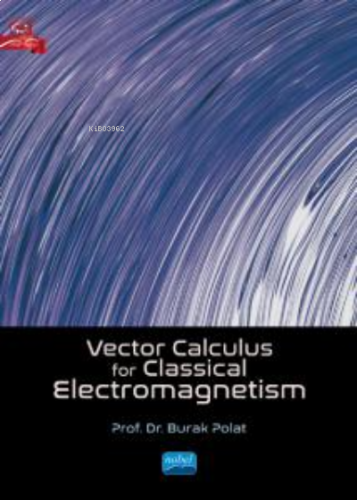9786254271991
744594

https://www.hesapli24.com/vector-calculus-for-classical-electromagnetism
Vector Calculus For Classical Electromagnetism
20.75
This book is an advanced original text on Vector Calculus aiming university students and researchers from engineering and basic sciences who are interested in the analytical aspects of classical electromagnetism as well as other disciplines of continuum physics. It is an outgrowth of the author's published works and university lectures throughout decades. The original material in the text includes the concept of Nabla Algebra, a complementary perspective on the network of relations between vector operators and integral theorems, vector algebraic properties of phasors, differential and commutative properties of the comoving time derivative operator, transport theorems in volumetric and nonvolumetric domains, generalized vector operators for studying singularities, spatial derivatives of point, space curve and surface type distributions of arbitrary order, and distributional forms of Stokes's and divergence theorems. The reader is assumed to be familiar with the notions of differential and integral calculus at sophomore level.
This book is an advanced original text on Vector Calculus aiming university students and researchers from engineering and basic sciences who are interested in the analytical aspects of classical electromagnetism as well as other disciplines of continuum physics. It is an outgrowth of the author's published works and university lectures throughout decades. The original material in the text includes the concept of Nabla Algebra, a complementary perspective on the network of relations between vector operators and integral theorems, vector algebraic properties of phasors, differential and commutative properties of the comoving time derivative operator, transport theorems in volumetric and nonvolumetric domains, generalized vector operators for studying singularities, spatial derivatives of point, space curve and surface type distributions of arbitrary order, and distributional forms of Stokes's and divergence theorems. The reader is assumed to be familiar with the notions of differential and integral calculus at sophomore level.
Yorum yaz
Bu kitabı henüz kimse eleştirmemiş.














